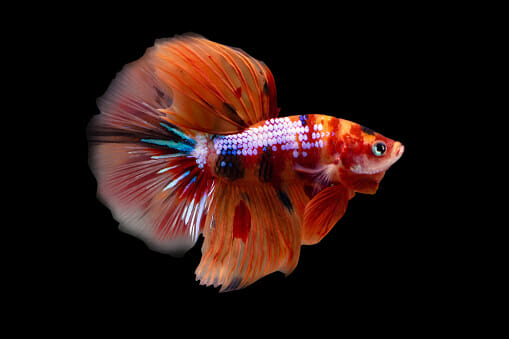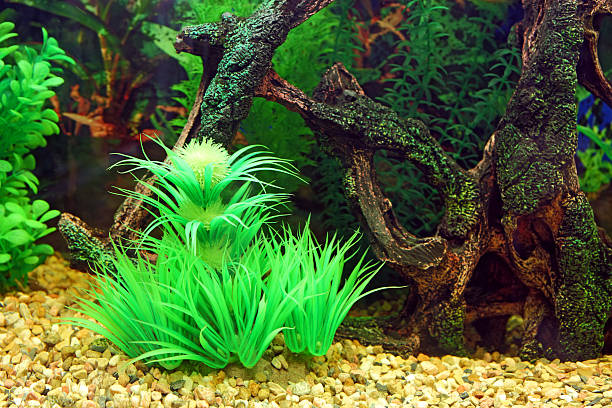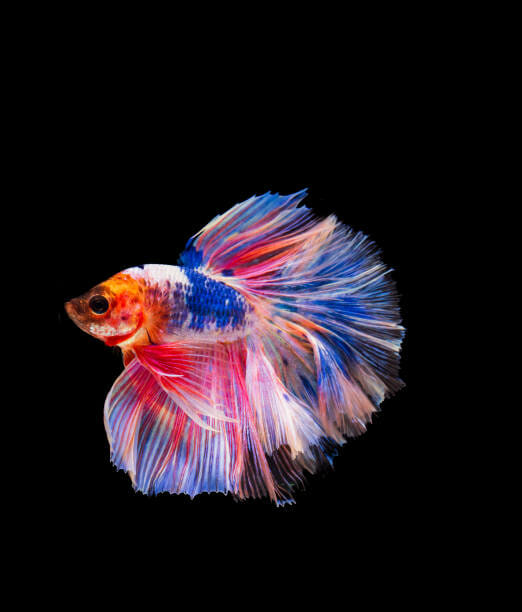Betta Fish Life Expectancy: Increase Their Lifespan
Betta fish (Betta splendens) is a species of tropical freshwater fish belonging to the Siamese fighting fish family Betta. Commonly known as Siamese fighting fish, betta fish originate from Thailand and Myanmar. These small, colorful, and interesting fishes are easy to maintain and care for.
Betta fish typically live two to five years in captivity. In the wild, most bettas will live up to roughly two years only. With these said, betta fish obviously can live longer inside an aquarium than in the wild where they need to constantly seek food sources.
Table of Contents
How to Lengthen Betta Fish Lifespan

Purchase Healthy Bettas
One of the best ways to lengthen your betta fish’s lifespan is by purchasing healthy Bettas when possible. Bringing a new, properly-sized aquarium home can be stressful for any fish and can cause them to lose their energy, appetite, and overall health. Simply keeping your bettas in an appropriate size tank will help keep them healthier and reduce conditions such as stress which could lead to shorter lifespans. Moreover, make sure the tank has a lid to prevent escape.
Provide Proper Environment
The key to a long lifespan for any fish is providing them with an appropriate environment. Bettas need clean water and plenty of hiding places to feel secure and avoid being picked on by other fish. A healthy diet is also important, as bland aquarium food can lead to digestive problems that can shorten a betta’s life span. Finally, be sure to give your bettas regular behavioral enrichment such as hiding objects or providing bubbling water to keep them amused and stimulated.
Use Proper Betta Fish Tank Decorations
Betta fish can become stressed if their tank is too bare, so it is important to provide them with hiding places and decorations. Provide your betta with a place to hide such as caves or an area of the tank that is covered in rocks. You can also use plants and other decorations to make your tank more appealing.
Separate Male Betta Fish
Betta fish can become aggressive and territorial if they are kept together in the same tank. It is important to keep male betta fish separate from each other so that they do not attack or harass each other. You can either use a large aquarium or purchase a betta tank divider to provide your pet with some privacy.
Provide Healthy Food
Feed your betta a healthy diet. A balanced and varied diet will help to prevent disease. Choose quality food that includes live and fresh vegetables and fruits. Do not overfeed your pet, bettas can easily overheat, which can lead to weight gain and unhealthy conditions in their tank. You should give them small meals and snacks instead twice per day. Betta fish are omnivorous and will eat a variety of food items. However, they especially enjoy live or frozen aquatic insect larvae. To provide your betta with the best diet, you should add spirulina flakes or freeze-dried bloodworms to their diet.
Consider Using Filter and Heater
A filter and heater are essential additions to any betta fish tank. A good quality filter will help reduce the number of harmful bacteria, debris, and parasites in your water while a proper heater will keep your aquatic pet comfortable during colder months by keeping the tank at an appropriate temperature. In addition, a filter will also help maintain the water quality.

Use Aquatic Plants to Provide Oxygen
Many people choose to add aquatic plants to their betta fish tank to provide the pets with oxygen and nutrients. This can help reduce the number of fish problems such as gas and algae build-up. When choosing an aquatic plant, it is important to make sure that it does not contain poison or toxins. Some of the best options would be Java fern and Cryptocoryne wendtii.
Provide Enough Aquarium Space
Betta fish require plenty of space to swim and hide. A standard betta tank that is 3 gallons or larger for a single betta fish will provide your pet with the necessary space. In addition, make sure to add additional living spaces such as a cave or an elevated area for your fish to situate itself in.
Maintain Water Temperature and Quality
Aquarium water temperature should be maintained at 75 to 78 degrees Fahrenheit or 23 to 26 degrees Celsius, the pH level falls within 6.5 to 8 range, and the tank must be kept clean to ensure proper water quality. Other important factors to consider include the hardness of your water and the amount of chlorine used in your municipality.
Choose the Right Tankmates
When choosing betta fish tank mates, it is important to consider the pet’s personality and compatibility before making a purchase. Some of the best choices for compatible tankmates would be other small fish such as Corydoras catfish or neon tetras while others may be out of place, such as gouramis. It is also important to make sure that your chosen pet can swim properly in an aquarium size large enough for them.
Regular Checkups and Maintenance
An aquarium full of colorful fish is a sight to behold, but it can also be a stressor for the inhabitants. Provide regular checkups by your veterinarian or pet store professional to ensure that your bettas are healthy both inside and out. regularly clean their water as well as any tanks they live in; using an effective filter will help reduce harmful bacteria and chemicals.

What Are the Common Diseases of Betta Fish?
There are a few common diseases that betta fish can contract including fin and tank issues, gill disease, and water quality problems. It is important to keep your fish’s environment clean by regularly changing the water and adding fresh food every day. The most common illnesses for betta fish include Ich, diarrhea, and gill problems.
If you notice any of the following signs in your pet betta fish, it is important to take them to a vet as soon as possible:
- Lethargy or decreased activity
- Reduce in appetite or refusal to eat
- Swimming sideways erratically or not at all darting movements
- Changed color, becoming pale
- Inability to close its mouth